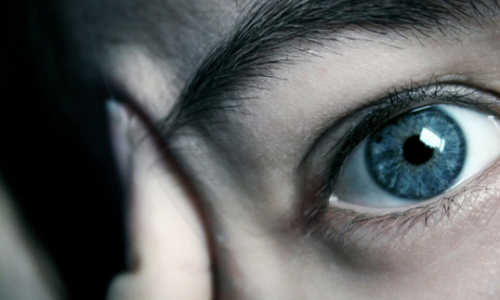Researchers at The University of Western Australia have found that that brain stimulation may help retrain unhelpful cognitive habits associated with anxiety and depression. The paper was published today in the international journal Biological Psychiatry.
In collaboration with researchers at the University of Oxford, the study revealed that around 20 minutes of targeted electrical stimulation to a region of the frontal cortex could dramatically improve the effectiveness of a computer-based task designed to retrain unhelpful patterns of attention that are known to maintain high levels of anxiety.
Lead author, Dr Patrick Clarke, of UWA’s School of Psychology and Centre for the Advancement of Research on Emotion, said the cognitive retraining procedure, known as attention bias modification, had shown considerable promise as a treatment for anxiety disorders, depression, addiction, and may even help with overeating.
“It works by having people practise a simple task where they have to repeatedly ignore certain unhelpful information, such as angry faces, or negative words, that would normally grab their attention,” Dr Clarke said.
“The more the task can help people to direct their attention away from this type of unhelpful information, the more benefit they tend to get from it in terms of lower anxiety.
“Our Oxford colleagues were previously able to identify an area of the frontal cortex that they believed could be responsible for the crucial change in attention that these tasks try to achieve. What’s particularly exciting about our study is that we’ve been able to show that delivering electrical stimulation to this same area can enhance the effectiveness of the training.”
The stimulation technique, known as transcranial direct current stimulation, or tDCS, can enhance activity in areas of the brain by applying a weak electrical current to the scalp.
“There has been some research looking into tDCS as a stand-alone treatment for conditions such as depression, but our findings suggest that it might be best used in conjunction with specific cognitive training tasks, such as the one we used,” Dr Clarke said.
Story Source:
The above story is based on materials provided by The University of Western Australia.





